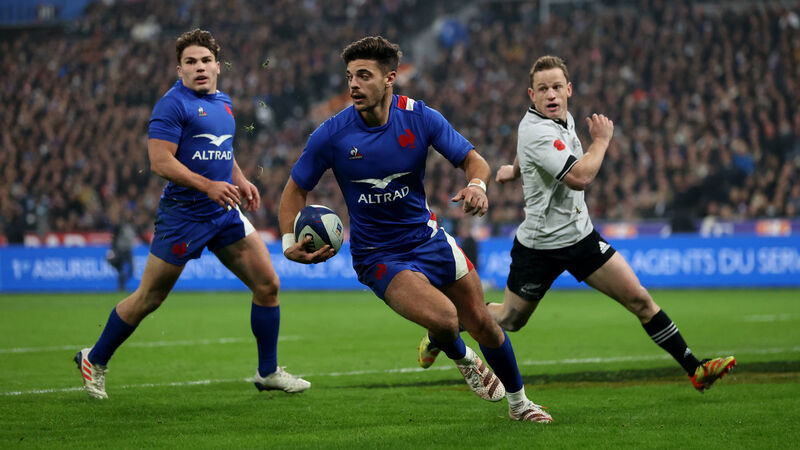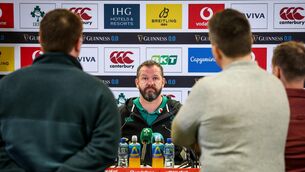Donal Lenihan: France team of the year but Andy Farrell's Ireland will get better and better

FEARLESS: Romain Ntamack opts not to take the easy option and makes a break from behind his own try line against the All Blacks on Saturday — a sign of France’s positive mindset, says Donal Lenihan.
When an experienced head like Peter O’Mahony proclaims that the last month in Irish camp has been “the most enjoyable in my career”, you have to take notice.













